
6 minute read
ARCHDIOCESE OF CINCINNATI’S TIMELINE
1821
Pope Pius VII issues Papal bull creating the Diocese of Cincinnati and names Fr. Fenwick as the first bishop.
Advertisement
1820s
1831
Anti-Catholic sentiment prompts Bishop Fenwick to found The Catholic Telegraph.
1833
Father John B. Purcell, a teacher, named second bishop of Cincinnati.
1830s
1844
14 priests and brothers from the Congregation of the Precious Blood arrived in Cincinnati. Bishop Purcell sends them to Maria Stein. Women religious from the Sisters of the Precious Blood soon follow.
1840s
1829
Bishop Fenwick establishes the Athenaeum of Ohio, a seminary school. The Sisters of Charity arrive in the diocese.
1832
Bishop Fenwick dies of cholera.
1837
Bishop Purcell publicly debates Alexander Campbell. This debate marks the first time an American bishop engaged in a debate with a Protestant clergyman.
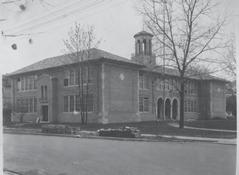
1879
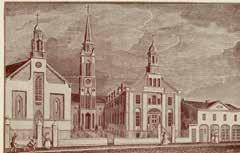
Archdiocesan bank fails. Financial devastation affects archdiocese and laity who deposited life savings into the bank. The seminary closes and does not reopen until 1887. Archbishop Purcell resigns, and Bishop William Elder assumes administrative duties.
1885
Daniel Rudd, a Black Catholic and former slave, establishes the American Catholic Tribune, a Catholic newspaper for Black Americans.
1890
Second Black Catholic Congress is held in Cincinnati July 8 -10.
1845
Ursuline Sisters arrive in Cincinnati from France. Led by Sister Julia Chatfield, OSU, they open Ursuline Academy and lay the groundwork for what is now Chatfield College.
1904
Henry Moeller is installed as the fourth archbishop of Cincinnati.
1909
Hamilton Catholic High School becomes the first regional Catholic high school.
1870s 1880s

1883
With the death of Archbishop Purcell, Bishop Elder is appointed archbishop of Cincinnati.
1890s
1898
The first Knights of Columbus chapters are established in the archdiocese.
1900s
1907
The first Holy Name Rally is held in Mount Adams.
1850
Pope Pius IX issues bull on July 19, elevating the Diocese of Cincinnati to rank of archdiocese.
1853
Archbishop Bedini visits Cincinnati. On Christmas night, hundreds of rioters gather around St. Peter in Chains Cathedral, protesting the influence of the Vatican in America.
1859
Franciscan Fathers arrive in Cincinnati. Their parish ministry begins with St. John the Baptist and St. Francis Seraph, both in Over-the-Rhine.
1860
The faithful begin the practice of “praying the steps” at Holy Cross Immaculata.
1863
Editorial in The Catholic Telegraph by Father Edward Purcell calls for the emancipation of slaves, the most public declaration by a Catholic newspaper.
1850s 1860s
1852
Sisters of Charity found St. John’s Hotel for Invalids, the first Catholic hospital in the city with a teaching college attached to it. This private hospital has evolved and is now Good Samaritan Hospital.
1855
On Aug. 20, gunpowder destroys newlybuilt Holy Angels Church in Sidney.

1911
Cincinnati hosts the fifth National Eucharistic Congress.
1915
Father Henry Waldhaus is tasked with opening a school for the deaf. With the aid of benefactors, 237 acres of land are purchased for St. Rita School for the Deaf. The school opens with 11 students and three teachers from the Sisters of Charity.
1916
Bureau of Catholic Charities is created with Father Francis Gressle as director.
1913
Extensive flooding along the Miami River causes considerable damage and suffering in Dayton, Hamilton and Middletown. Relief funds are raised throughout the archdiocese to support those affected.
1910s
1861
Father Dwenger, C.PP.S., founds St. Charles Seminary in Carthagena, for the Congregation of the Precious Blood.
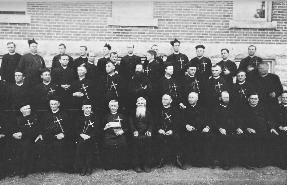
1919
Catholic Students Mission Crusade headquarters moves to Cincinnati.

ARCHDIOCESE OF CINCINNATI

A History of Catholicism in Western and Southwestern Ohio
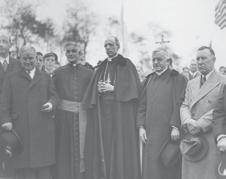
1920
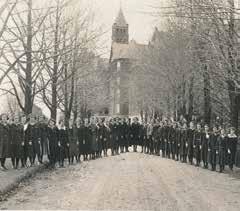
The Sisters of Charity open the College of Mount St. Joseph for women.
1936
Cardinal Pacelli, the future Pope Pius XII, visits the U.S. and stops in Cincinnati. After this visit, the elementary school at Our Lord Christ the King Church is named the Cardinal Pacelli School.
1939
Father William Bishop, a priest in the Archdiocese of Baltimore, founds the Glenmary Home Missioners and is invited by Archbishop McNicholas to establish the headquarters in Cincinnati.
1920s
1921
Catholic Social Services of the Miami Valley established.
1925
Following the death of Archbishop Moeller, John McNicholas is named archbishop.
1930s
1937
Flooding along the Ohio River causes extensive damage. In Cincinnati, the water crests at 80 feet, which is 30 feet over flooding levels. Many Catholic churches suffer damage, including St. Rose of Lima and St. Michael in Lower Price Hill, prompting relief efforts.
With the downtown population shrinking and St. Peter in Chains requiring much upkeep, Archbishop McNicholas decide to move the cathedral to St. Monica Church in Clifton. St. Peter in Chains is referred to as “the old cathedral.”

1970
Franciscan Friars of the St. John the Baptist Province in Cincinnati create Franciscan Media.
1972
Following the unexpected death of Archbishop Leibold, Joseph Bernardin is named Archbishop of Cincinnati.
1975
Archdiocese launches the Lay Pastoral Ministry program.
1970s
1976
Cardinal Karol Wojtyla visits Archbishop Bernardin, then the head of the National Conference of Catholic Bishops. (Two years later Cardinal Wojtyla is elected pope and takes the name John Paul II.)
1982
When Archbishop Bernardin is sent to the Archdiocese of Chicago, Dayton-born Auxiliary Bishop Daniel Pilarczyk is named the ninth archbishop of Cincinnati.
1980s
1971
Following the Second Vatican Council, Archbishop Leibold launches the sixth archdiocesan synod, involving, for the first time, a significant number of laity in planning for the Church’s future.
1974
50 men enroll in the newly established permanent diaconate program.
Mother Teresa makes her first of three visits to the greater Cincinnati area.
1986-1989
Archbishop Pilarczyk serves as vice president (1986–1989) and president (1989–1992) of the National Conference of Catholic Bishops.
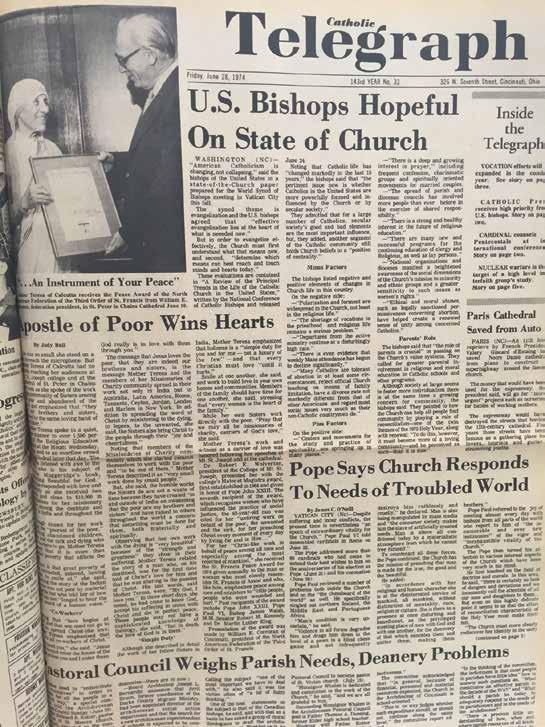

1941

Father Bishop founds Glenmary Sisters.
1940s
1954
Renovation and expansion of St. Peter in Chains begins.
1957
St. Peter in Chains rededicated. Week-long celebration takes place.
1950s
1962 - 1965
Archbishop Alter and Bishops Paul Leibold and Edward McCarthy participate in the Second Vatican Council, with Alter present at all four sessions. A leader among bishops in the U.S., he was a member of committees preparing materials prior to the council. At the conclusion of the council, he directs every parish to establish a parish council and begins the process of implementing liturgical reforms.
1960s

1950
Karl Alter named archbishop.
1993
Archdiocese publishes the Decree on Child Protection, establishing policies and procedures to prevent abuse of minors by the clergy, lay employees and volunteers.
1990s
2000
Archbishop Pilarczyk establishes The Futures Project to discuss and make plans for the future of the local Church in light of declining priest numbers. Among the accepted recommendations is the creation of pastoral regions.
2009
Archbishop Dennis Schnurr is named the 10th Archbishop of Cincinnati.
1969
Bishop Paul Leibold named archbishop and charged with implementing many of the conciliar reforms in the archdiocese. He dies suddenly at age 57, having served as archbishop for less than three years.
2020
COVID-19 pandemic closes churches and instigates year-long dispensation from Mass.
In June, 190-year-old Catholic Telegraph newspaper converts to magazine format.
2000s 2010 - present
1997
Su Casa Hispanic Center is founded as a program of Catholic Charities Southwestern Ohio. It is the primary provider of social, case management, family reunification, educational and health-promotion services to the Hispanic/Latino community in Greater Cincinnati.
2001
Sacred Heart Radio begins, bringing Catholic content to the public 24/7.
2008
Bishop Dennis Marion Schnurr named Archbishop Pilarczyk’s coadjutor in October.
2016-2019
Archbisop Schnurr serves as Treasurer of the USCCB.
2021
June 19, 2021: Archdiocese turns 200.











